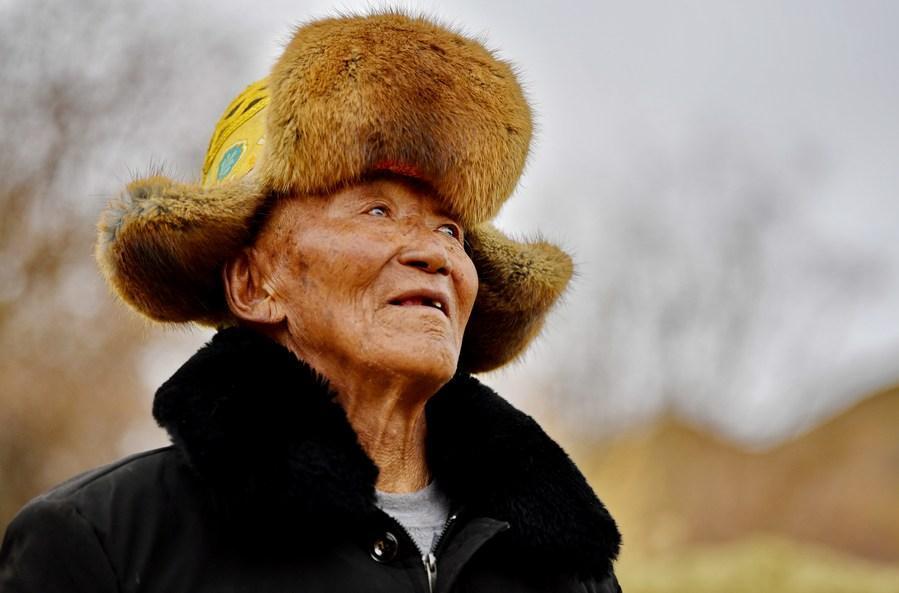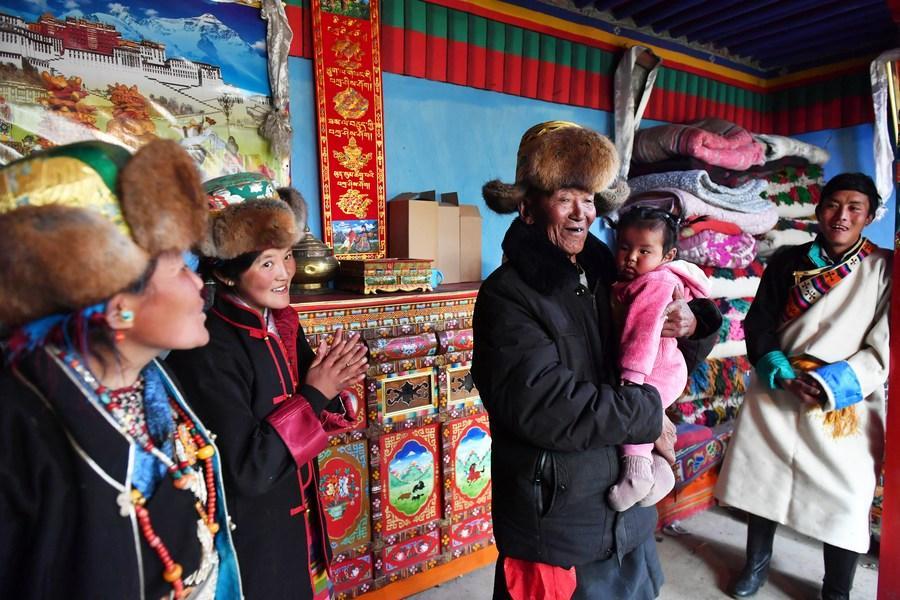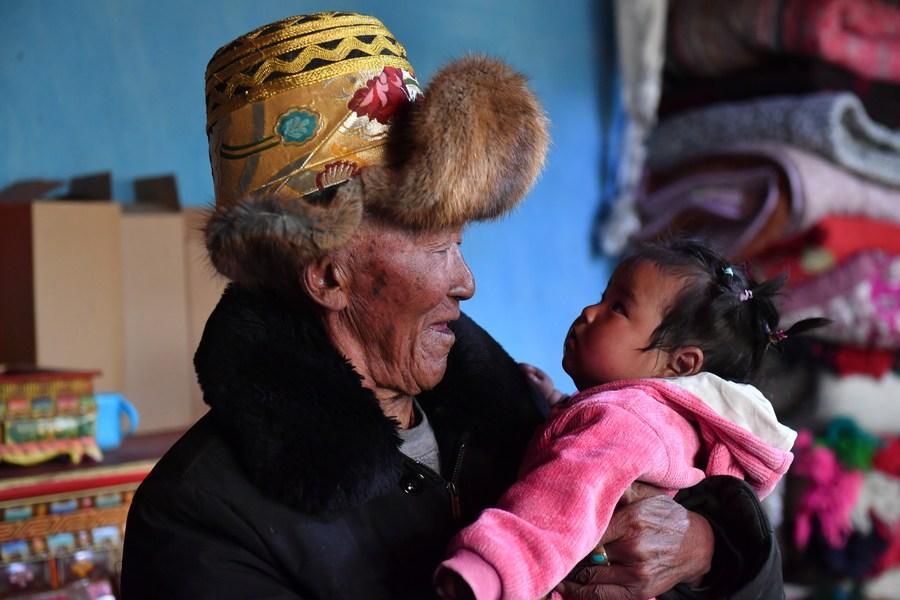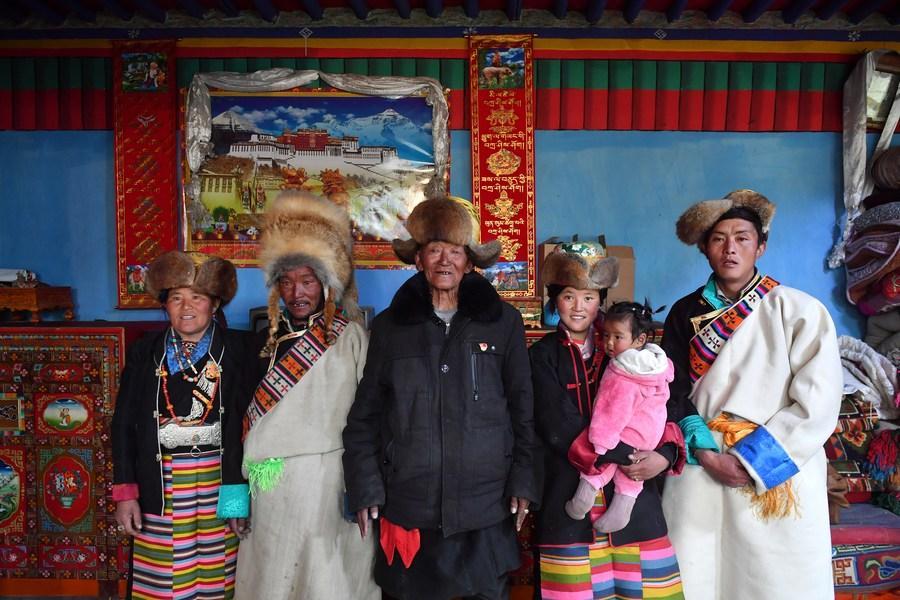Source:Xinhua 2021年05月31日 16:45

Photo taken on March 21, 2021 shows a portrait of former serf Basang in Xigaze, southwest China's Tibet Autonomous Region. (Xinhua/Zhang Rufeng)
LHASA, March 25 (Xinhua) -- Basang, born in 1934, is a villager of Taye Village in Xigaze in southwest China's Tibet Autonomous Region.
In the old times, the family of Basang had to pay various taxes to serf owners, under whom the family led a miserable life.
"The taxes imposed on us were even more than ripples in the water and stars in the sky," recalled Basang.
Basang's family began to embrace the new life in 1959, after a democratic reform liberated more than 1 million people, or 90 percent of the region's population at the time, from feudal serfdom.
Nowadays, Basang lives with his children and grandchildren. "I hope that my personal experience can tell more people about the sufferings of the Old Tibet and how lucky we are having a happy life today," he says.

Former serf Basang (C) talks with his family at his home in Taye Village of Xigaze, southwest China's Tibet Autonomous Region, March 21, 2021. (Xinhua/Sun Ruibo)

Former serf Basang holds his 9-month-old great-granddaughter at his home in Taye Village of Xigaze, southwest China's Tibet Autonomous Region, March 21, 2021. (Xinhua/Sun Ruibo)

Photo taken on March 21, 2021 shows former serf Basang (3rd L) posing for photos with his family at home in Taye Village of Xigaze, southwest China's Tibet Autonomous Region. (Xinhua/Zhang Rufeng)